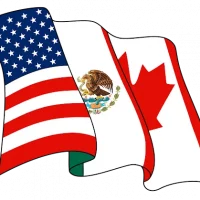On the morning of September 19, 1985, an 8.1-magnitude earthquake hit the western states of Mexico and including Mexico City. Western Mexico is particularly vulnerable to earthquakes with the Pacific plate and Cocos plate moving against the North American plate actively. As Mexico City is situated on an ancient lakebed plateau composed of mostly dirt… Read More "The 1985 Mexico City Earthquake"
“The Worst Day” — 9/11 and the International Response
“It was the worst day we have ever seen, but it brought out the best in all of us.” –Senator John Kerry In the hours and days after the tragic attacks of September 11, 2001, nations across the world gathered in solidarity and commiseration for those who had lost their lives. The assaults on both… Read More "“The Worst Day” — 9/11 and the International Response"
The Fight to Ratify the Panama Canal Treaty
Since Panama’s independence from Colombia in 1903, the Panama Canal had been a dramatic and ongoing point of discussion. The United States had engineered Panamanian independence from Colombia when it did not want to pay higher construction fees proposed by the Colombian and French companies building the canal; the new country then signed a treaty… Read More "The Fight to Ratify the Panama Canal Treaty"
It has its share of ardent supporters, who see it as a force for positive economic and social change, as well as die-hard opponents, who lament the loss of jobs and the damage done to some small towns and cities. Whatever the sentiment, it is hard to deny the tremendous effect the North America Free… Read More "The Birth of NAFTA"
“You’re Outta Here!”: Getting Declared Persona Non Grata
When a nation declares a diplomat “persona non grata,” it is essentially kicking him or her out of the country. The host nation does not have to explain why it wants to PNG someone, but that person must leave the country in a given time period, often within 24-48 hours. Governments declare people persona non… Read More "“You’re Outta Here!”: Getting Declared Persona Non Grata"
More No-tell CODELs
Members of Congress often travel abroad on official trips for business purposes in order to meet with governmental officials and gain first-had knowledge on issues relevant to foreign policy. The task of planning, executing and escorting these Congressional delegations, or CODELs, is given to members of the Department of State at the United States embassies… Read More "More No-tell CODELs"
The 1969 ‘Soccer War’ Between Honduras and El Salvador
Every four years, the world’s attention turns to the spectacle that is the World Cup. Rivalries can be fierce as countries vie for the most coveted prize in international sports. For the most part, the action stays on the pitch. But not always. In 1969, long-simmering tensions between Honduras and El Salvador, which were competing… Read More "The 1969 ‘Soccer War’ Between Honduras and El Salvador"
“There Will be Blood:” The British Recapture the Falklands
The Falklands War began as a tragically misguided game of smoke and mirrors, designed to inflame Argentinian patriotism and redirect attention away from internal crises. As economic stagnation and vocal dissatisfaction with the ruling military juntas persisted, General Leopoldo Galtieri and Admiral Jorge Anaya orchestrated an unprovoked invasion of the Falklands, a thinly populated archipelago… Read More "“There Will be Blood:” The British Recapture the Falklands"
Top Ten Things You Learn From a Hostage Situation
Sometimes it just ain’t easy working for the State Department. If you go through the lengthy history of the Foreign Service in the second half of the 20th Century, there are a surprising number of diplomats who have been held hostage. And while the situations and political context are very different, certain things do stand out.…
James A. Baker III — The Velvet Hammer
James A. Baker served as the Secretary of State during the Presidency of George H.W. Bush from 1989 to 1992, a period that included such events as the collapse of the Soviet Union, the First Gulf War, and renewed Arab-Israeli peace talks. Remembered as a skilled diplomat and negotiator, Secretary Baker was given the Ralph…

